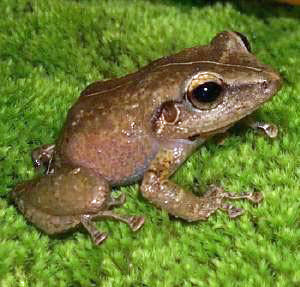Facts About Coquí
The Coquí is a diminutive frog indigenous to Puerto Rico, classified under the genus Eleutherodactylus, and is renowned for its resonant mating call. With over 16 distinct species, the Coquí has become an emblematic symbol of Puerto Rico. These frogs possess remarkable features, such as specialized adhesive disks on their toes that facilitate climbing. They inhabit tropical regions, thriving at various elevations in both forested and urban areas.
Coquís play a crucial role in regulating insect populations and sustaining healthy ecosystems. They breed continuously throughout the year, with a marked increase in activity during the wet season. Fascinatingly, Coquí frogs bypass the tadpole stage in their life cycle entirely. However, their populations have been dwindling, primarily due to the pathogenic fungus Batrachochytrium dendrobatidis and environmental pressures such as hurricanes and droughts.
Although Coquís are native to Puerto Rico, they have also established populations in locations like Hawaii, California, Florida, and the Dominican Republic. In Hawaii, they have unfortunately become an invasive species, posing threats to native wildlife. Efforts to control their populations have faced significant challenges, and eradication initiatives have achieved limited success.
The Coquí holds profound significance in Puerto Rican culture, with links to the indigenous Taíno people and various legends regarding its origins. The frog's distinctive call is woven into music, literature, and children's stories. Additionally, climate change is affecting Coquí populations, altering their calls and potentially leading to further declines.
